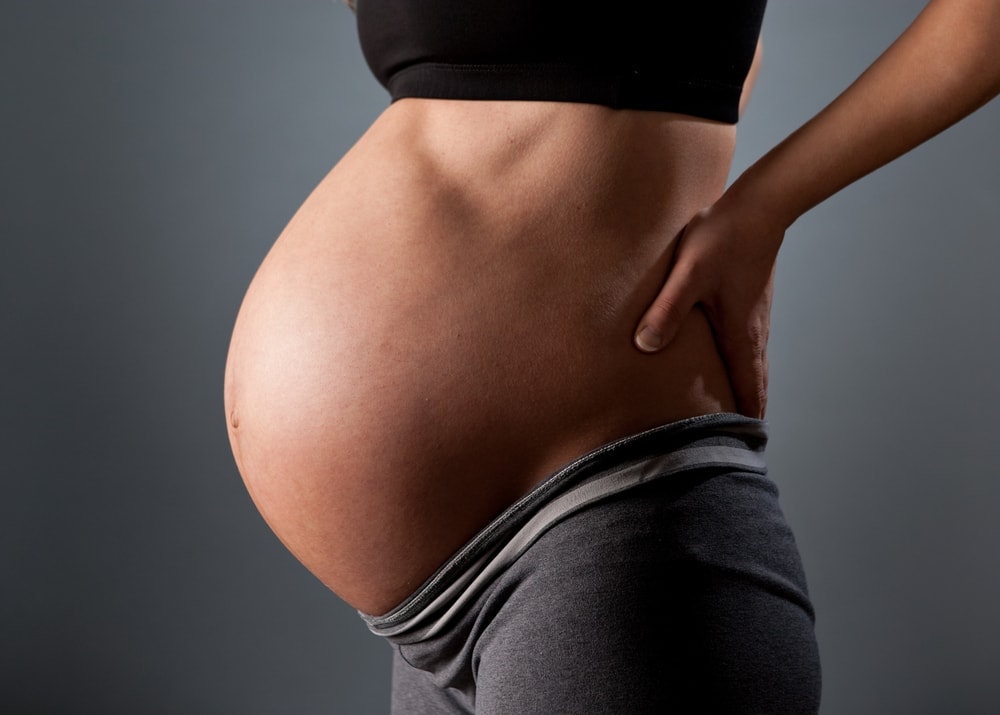Back pain or discomfort is common during pregnancy and should be expected to some degree by most women. Back pain may be experienced during any point of your pregnancy; however, it most commonly occurs later in pregnancy as baby grows.
Back pain can disrupt your daily routine or interfere with a good night of sleep. The good news is there are steps you can take to manage the back pain that you experience.
Back Pain During Pregnancy: Causes, Treatment and Prevention
You are not alone if you experience back pain during your pregnancy. The prevalence varies with reports showing between 50 to 70 percent of pregnant women experiencing back pain.
What causes back pain during pregnancy?
Back pain during pregnancy is related to a number of factors. Some women begin to have lower back pain with the onset of pregnancy. Women who are most at risk for back pain are those who are overweight or had back pain prior to pregnancy.
Here is a list of potential causes of back pain or discomfort during pregnancy:
- Increase of hormones – Hormones released during pregnancy allow ligaments in the pelvic area to soften and the joints to become looser in preparation for the birthing process; this shift in joints and loosening of ligaments may affect the support your back normally experiences.
- Center of gravity – Your center of gravity will gradually move forward as your uterus and baby grow, which causes your posture to change.
- Additional weight – Your developing pregnancy and baby create an additional weight that your back must support.
- Posture or position – Poor posture, excessive standing, and bending over can trigger or escalate the pain you experience in your back.
- Stress – Stress usually accumulates in weak areas in the body, and because of the changes in your pelvic area, you may experience an increase in back pain during stressful periods of your pregnancy.
How can you prevent or minimize back pain during pregnancy?
Back pain may not be prevented completely, but there are things that you can do to reduce the severity or frequency.
Here are a few steps you can take to help reduce the back pain you are experiencing:
- Use exercises approved by your health care provider that support and help strengthen the back and abdomen.
- Squat to pick up something instead of bending over.
- Avoid high heels and other shoes that do not provide adequate support.
- Avoid sleeping on your back.
- Wear a support belt under your lower abdomen.
- Consider having your back adjusted by a chiropractor.
- Get plenty of rest. Elevating your feet is also good for your back.
How can you treat back pain during pregnancy?
There are a number of things you can do to treat back pain during pregnancy. Some of the steps you take to avoid back pain may also be used to treat current back pain.
Here are some other common interventions:
- Ice or heat
- Braces or support devices
- Medications used to treat inflammation
- Sleep on your left side, and use a support pillow under your knees.
- Schedule an appointment with a licensed health care professional such as a chiropractor or massage therapist.
When to contact your health care provider?
Experiencing back pain is usually not a reason to contact your health care provider, but there are situations where contacting your provider is necessary.
You want to contact your health care provider if you are experiencing any of the following:
- Severe back pain
- Increasingly severe or abrupt-onset of back pain
- Rhythmic cramping pains–This could be a sign of preterm labor.
Severe back pain may be related to pregnancy-associated osteoporosis, vertebral osteoarthritis, or septic arthritis. These are not common, but it is something your health care provider will examine for if you are experiencing severe back pain.
Your Next Steps:
- Begin an approved exercise program to support your back and abdomen.
- Set aside a couple of times each day when you can take a nap or get off your feet.
- Purchase a support belt.
- Purchase a sleep aid pillow.
- Search below for a chiropractor or massage therapist.
Want to Know More?
- Treating Muscle Cramps Naturally During Pregnancy
- Pregnancy and Leg Cramps
- Pregnancy Exercise Guidelines
- Safe Exercise During a Multiples Pregnancy
Compiled using information from the following sources:
Danforth Obstetrics and Gynecology Ninth Ed. Scott, James. Gibbs, et al, Ch. 1
Williams’s Obstetrics Twenty-Second Ed. Cunningham, F. Gary, et al, Ch. 8
Mayo Clinic, https://www.mayoclinic.com
American Academy of Physical Medicine and Rehabilitation, https://www.aapmr.org






